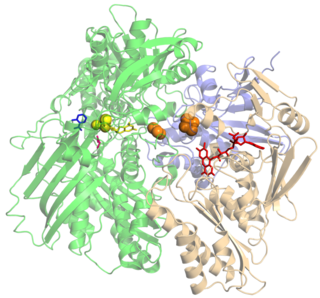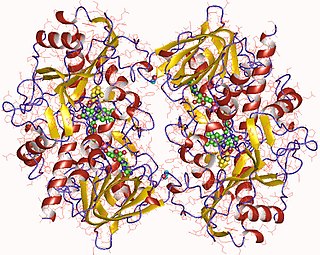| L-pipecolate oxidase | |||||||||
|---|---|---|---|---|---|---|---|---|---|
| Identifiers | |||||||||
| EC no. | 1.5.3.7 | ||||||||
| CAS no. | 81669-65-0 | ||||||||
| Databases | |||||||||
| IntEnz | IntEnz view | ||||||||
| BRENDA | BRENDA entry | ||||||||
| ExPASy | NiceZyme view | ||||||||
| KEGG | KEGG entry | ||||||||
| MetaCyc | metabolic pathway | ||||||||
| PRIAM | profile | ||||||||
| PDB structures | RCSB PDB PDBe PDBsum | ||||||||
| Gene Ontology | AmiGO / QuickGO | ||||||||
| |||||||||
In enzymology, a L-pipecolate oxidase (EC 1.5.3.7) is an enzyme that catalyzes the chemical reaction
- L-pipecolate + O2 2,3,4,5-tetrahydropyridine-2-carboxylate + H2O2
Thus, the two substrates of this enzyme are L-pipecolate and O2, whereas its two products are 2,3,4,5-tetrahydropyridine-2-carboxylate and H2O2.
This enzyme belongs to the family of oxidoreductases, specifically those acting on the CH-NH group of donors with oxygen as acceptor. The systematic name of this enzyme class is L-pipecolate:oxygen 1,6-oxidoreductase. Other names in common use include pipecolate oxidase, and L-pipecolic acid oxidase. This enzyme participates in lysine degradation.




